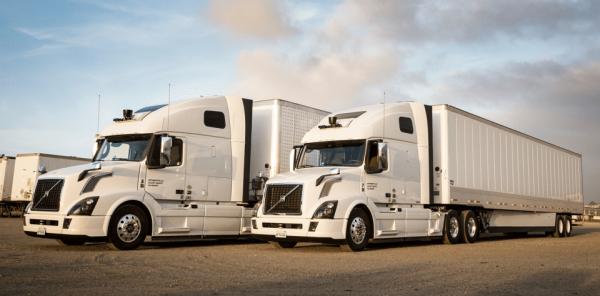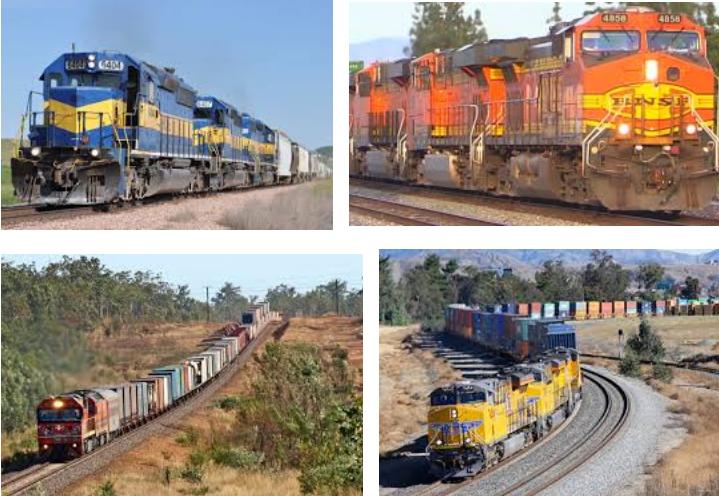Uber "self-driving trucks" are NOT trucks. And this means that...
Uber believes that Self-Driving Trucks will result in MORE jobs for truck drivers, not less. Why, and what does this REALLY mean?
The study from which Uber draws such conclusions is commented by A. Madrigal at the Atlantic. In extreme synthesis, it says (1) that:
- self-driving trucks may soon transport much more freight, at much lower prices than human-driven ones, on highways, among “transfer hubs”
- human drivers, instead, will remain for a long time a much better solution to drive trucks “in the last miles, through complex urban and industrial terrain”
- but if more goods will be trucked among transfer hubs just because of self driving trucks… demand for “last mile” human drivers, to deliver those goods locally, will increase, not decrease
Of course, those trucker jobs, and the related conditions, will be quite different (2) than today. And they may be MORE than today only if we all continued to move long distance as much physical matter as possible, instead of polluting less by producing less, but highly repairable goods locally (3). But that is not the topic of this post. You only need to compare these two pictures:

<u><em><strong>CAPTION:</strong>
<a href="https://www.theatlantic.com/technology/archive/2018/02/uber-says-its-self-driving-trucks-will-be-good-for-truckers/551879/" target="_blank">Image source: Uber's prototype self-driving semi-trucks, from The Atlantic</a>
</em></u>

Image source: collage from Google search
</em></u>
to realize what Uber calls “self driving trucks” in that study really are, and what it means.
In that study, “self driving truck” is just the buzzword-based equivalent of “on demand, micro freigth train” that just runs on highways, instead of rails. What Uber proposes is just the freight version of what I consider the correct name of “self driving cars”, that is SOMT (“Shared, On demand Micro Train” (4)). And what would limit “for a very long time” urban usage of self-driving trucsk is the same thing that prevents us from making our cities more livable: insisting that self-driving “whatevers” and humans must share the same paths.
Transportation as a service, instead, needs better cities, not smarter cars (or trucks). Even the car industry already says so. But whatever they carry, those “on-demand micro trains” must be under control of citizens, not corporations (2). Feedback is welcome.
- quotes borrowed by this Slashdot post
- Job conditions for those “more drivers” may be even worse than what the Atlantic article reports. A likely outcome of self driving trucks, unless action is taken, is Uber running those trucks for Amazon (unless Amazon just buys Uber, for that very reason), thus allowing Amazon to also take over (“it’s all for the customer, you know!") the local delivery market, and run it directly, amplifying the same overall effects it already has on “poor” cities, and their quality of life
- Being a member of the Free Knowledge Institute, I’ve worked in the DiDIY project which also analysed the beneficial effects of LOCAL, distributed digital manufacturing. To see what I mean, please read:
- When 3D printing meets the assembly line
- Digital inventory outsourcing = open, collaborative making?
- The Digital DIY Manifesto for a Creative Society
- The DiDIY Manual
- Yes, that acronym does suck. Please do suggest a better one, with the same meaning, thanks.
Who writes this, why, and how to help
I am Marco Fioretti, tech writer and aspiring polymath doing human-digital research and popularization.
I do it because YOUR civil rights and the quality of YOUR life depend every year more on how software is used AROUND you.
To this end, I have already shared more than a million words on this blog, without any paywall or user tracking, and am sharing the next million through a newsletter, also without any paywall.
The more direct support I get, the more I can continue to inform for free parents, teachers, decision makers, and everybody else who should know more stuff like this. You can support me with paid subscriptions to my newsletter, donations via PayPal (mfioretti@nexaima.net) or LiberaPay, or in any of the other ways listed here.THANKS for your support!